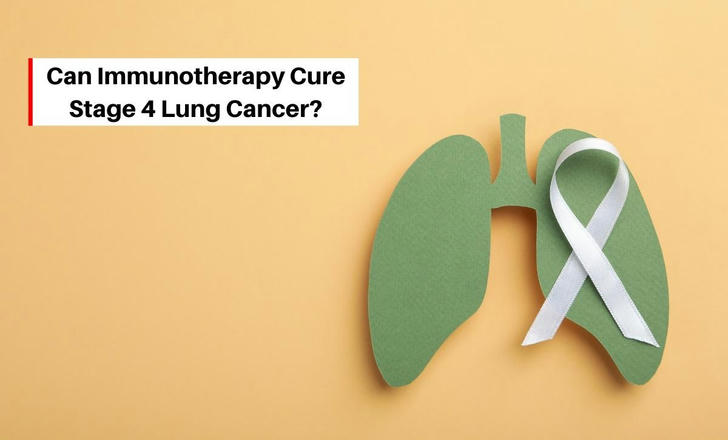Breakthroughs in Immunotherapy: A New Hope for Lung Cancer Survival
Lung cancer is one of the most common and deadliest forms of cancer worldwide. For many years, treatment options were limited to surgery, chemotherapy, and radiation therapy, with modest success. However, the rise of immunotherapy has changed the game, offering patients improved survival and a better quality of life. This article explores how immunotherapy works, its impact on lung cancer life expectancy, and its role in advanced-stage cases, including Stage 4 lung cancer.
What Is Immunotherapy and How Does It Work?
Immunotherapy is a treatment that uses the body’s immune system to fight cancer. It helps immune cells recognize and destroy cancer cells, which often hide from the immune system. The most common types of immunotherapy for lung cancer are:
• Immune checkpoint inhibitors (e.g., pembrolizumab, nivolumab).
• CAR-T cell therapy (a more advanced but less commonly used option).
Unlike chemotherapy, which targets both healthy and cancerous cells, immunotherapy focuses on boosting the immune system’s natural ability to fight cancer.
How Immunotherapy Improves Life Expectancy
One of the most promising aspects of immunotherapy is its ability to extend survival in lung cancer patients. Studies have shown that patients receiving immune checkpoint inhibitors can live significantly longer compared to those receiving traditional treatments.
For instance:
• Patients with high levels of PD-L1, a biomarker that predicts immunotherapy success, have experienced survival rates beyond two years in many cases.
• Even for patients with advanced or metastatic cancer, immunotherapy has provided durable responses and prolonged life.
While immunotherapy is not a guaranteed cure, it has transformed lung cancer from a terminal diagnosis into a manageable condition for many.
Can Immunotherapy Cure Stage 4 Lung Cancer?

Stage 4 lung cancer is challenging to treat because the disease has spread to other parts of the body. While a complete cure is rare, immunotherapy has delivered significant improvements in outcomes for some patients.
Here’s why:
• Targeted Approach: Immunotherapy helps the immune system recognize and attack cancer cells, even in advanced stages.
• Personalized Treatment: Biomarker testing (e.g., PD-L1 expression, tumor mutational burden) helps identify patients who are most likely to benefit.
Although not all patients respond to immunotherapy, ongoing research and clinical trials are exploring new combinations and techniques that may bring us closer to a cure.
The Power of Combining Chemotherapy and Immunotherapy
For many patients, combining chemotherapy with immunotherapy offers the best of both worlds:
• Chemotherapy reduces tumor size quickly.
• Immunotherapy boosts the immune system’s long-term ability to fight cancer.
Combination treatments, such as pembrolizumab with platinum-based chemotherapy, have been approved for advanced lung cancer. These therapies often lead to better survival rates compared to using either treatment alone.
However, combination therapy can cause side effects like fatigue and nausea, so careful monitoring is essential.
What Makes Immunotherapy Different for Stage 4 Patients?
For Stage 4 lung cancer patients, immunotherapy offers hope where traditional treatments often fall short. While not every patient responds, those who do may experience long-term benefits, including remission in some cases.
Emerging therapies such as CAR-T cell therapy and cancer vaccines are also being studied, offering additional options for patients with advanced disease.
The Future of Immunotherapy in Lung Cancer
Research into immunotherapy is advancing rapidly, with exciting new developments on the horizon:
• Next-Generation Treatments: Bispecific antibodies, oncolytic viruses, and cancer vaccines are showing promise in clinical trials.
• Personalized Medicine: Genetic testing and AI are helping doctors match patients with the most effective treatments.
These innovations are expected to make immunotherapy even more effective and accessible in the years to come.
FAQs
• Can immunotherapy cure stage 4 cancer?
While immunotherapy has not yet emerged as a definitive cure for Stage 4 lung cancer, it has achieved remarkable outcomes in many cases. Ongoing clinical trials are exploring novel combinations and approaches that could potentially achieve this goal in the future.
• What are the potential side effects of immunotherapy?
Immunotherapy is generally well-tolerated compared to traditional cancer treatments like chemotherapy, but it can still cause side effects. These occur because immunotherapy boosts the immune system, which may mistakenly attack healthy cells along with cancer cells. The type and severity of side effects can vary based on the specific immunotherapy used, the patient's overall health, and the cancer being treated. Common side effects include fatigue, skin reactions, and flu-like symptoms.
Conclusion
Immunotherapy has revolutionized the way lung cancer is treated, offering patients new hope for longer and healthier lives. While challenges remain, especially for advanced-stage cases, ongoing research continues to push the boundaries of what is possible.
Learn More:
